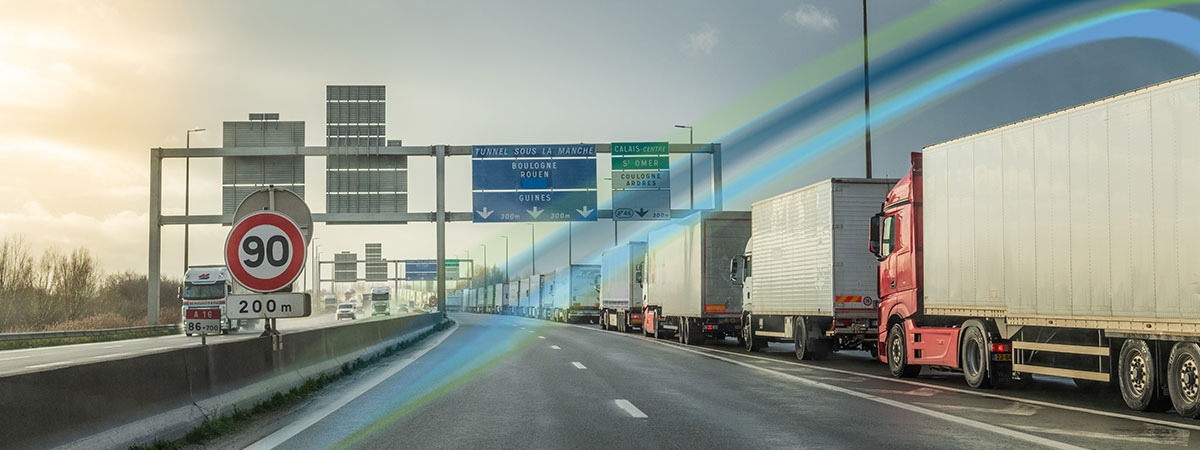UK’s Road Transporters Should Be Ready for Vehicle Safety Changes in France
UK Logistics businesses are being warned to comply with new French safety regulations introduced on the 1st January or risk facing fines.
The legislation states that all vehicles weighing in excess of 3.5 tonnes driving in France must display stickers indicating driver blind spots. This extends to passenger transport and commercial vehicles. Additionally, all vehicles should be fitted with at least one indirect vision safety system, such as mirrors with a field of view that allows for no blind spots that are likely to obscure a vehicle about to overtake it. It also states that control devices must be in reach of the driver to use when the vehicle is moving.
This comes as welcome news to road safety campaigners and experts but have also issued the warning that mirrors are not sufficient to eliminate blind spots.
Emily Hardy from market leading provider Brigade Electronics UK, commented: “This legislation is a welcome change; however, it is important for operators to understand that mirrors alone do not eliminate blind spots. Therefore, they could still be fined according to the legislation’s requirements. We recommend fitting a range of vehicle safety technology such as Brigade’s DVS Safe System kits, to ensure operators comply with legislation across Europe and that drivers have full visibility of their vehicle’s surroundings.”
These kits are available in two different types; for rigid and articulated vehicles and include side cameras, ultrasonic sensors for the nearside of the vehicle and an alarm that activates when the vehicle is turning. Both kits are compliant with London’s Direct Vision Standard as well as EU law which gives drivers peace of mind when crossing the border.
Lafarge is one of the many companies to have benefitted from installing the kits to its fleet of concrete mixing trucks. With road safety being a concern for all of the construction industry, the company took progressive action to ensure the safety of their vehicles.
As well as the kits, Lafarge also installed Brigade’s bb-tek White Sound reversing alarm and Brigades Backeye 360, a camera designed to provide drivers with a 360-degree view of the vehicle.
President of Trans Route Béton, Othmane Jennane said: “With just one look, drivers have a complete surround view of the vehicle without any blind spots and the added peace of mind that pedestrians will also be warned by the white sound alarm. It provides absolute safety.”
This could potentially spell out further bad news for UK Logistics companies and driving within Europe as many changes to Customs regulations are being made as a result of Brexit.
Another challenge that firms have desperately tried to mitigate before 31st December was the sourcing of a sufficient number of customs clerks to be trained up and ready before the implementation of the new trading regime. Speaking last Autumn, Barney Weston, managing director of Oceanic Resources International warned that serious shortage was unavoidable.
On the current situation, he said: “I think most (firms) managed to get the bulk of their teams in place before the end of the year, but training and ‘filling the gaps’ continues. In most cases a Customs and Compliance Manager/ Brexit Head is in place (in firms) giving the strategic lead on how to handle the UK’s new trading relationship.”
He went on to say: “I know that in many cases training and upskilling is on-going, and there is still high demand for people to fill customs clerk positions, but it’s hard to accurately quantify this in numbers. Certainly, anyone who has ever sniffed a customs clearance in their career history is still worth their weight in gold!”
“I think the whole industry will have a clearer picture on the situation by the end of the month; so much was unknown heading into Brexit. I think that shortly people will know if they can handle demand with the current staff levels or if more will be needed.”
